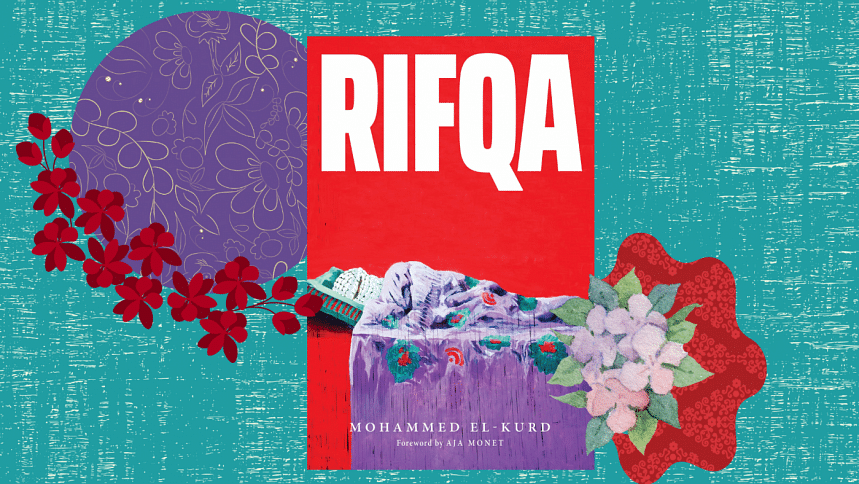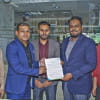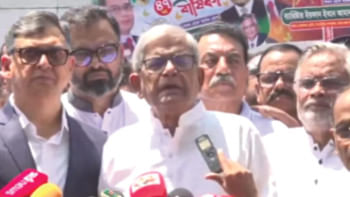Rifqa: A spellbinding account of persecution, courage, and survival

In an age where many unfortunately view poetry as a pretentious, bourgeois pastime, poets like Mohammed El Kurd remind us of its revolutionary and political significance. Born and raised in East Jerusalem, the 24-year-old activist takes us on a visceral journey through several destinations, all rife with systemic oppression, and all united in a shared struggle for liberation, in his first-ever book, Rifqa.
At its core, Rifqa is a book about human struggles in painfully inhumane circumstances. It uses poetry as both weapon and medicine, where you are filled with empathy for the people it talks about but also enraged by the persecution they face. It does not put any of its characters on pedestals nor does it patronise them as helpless victims. Instead, it presents human beings that are so often dehumanised or turned into statistics, in all their rage, their fear and their hope, without even trying to.
One of the central themes of the book is women. The book itself is named after the author's late grandmother, Rifqa El Kurd, who is considered an icon of Palestinian liberation and is quoted in several of the poems. Mohammed speaks openly about how much she has shaped him as a person and as an activist, and so have other women like her, in a way that is both inspiring and nostalgic for the reader.
The poem, "Girls in the Refugee Camps", centring a transgender refugee, paints a striking image of the unbearable reality of surviving familial trauma and grief.
What is truly magical about Rifqa is how it manages to weave threads of solidarity between cultures and locations that are oceans and seas apart, both literally and figuratively, and somehow makes them all feel like home. The author speaks about his experiences in America, specifically in Atlanta and New York, where the land is foreign but the oppression he witnesses is not.
Mohammed's poetry is also intersectional, delving into a variety of topics such as refugee crises, transphobia, systemic racism, and many others, not in isolation from each other, but as overlapping experiences that are often intricately connected.
In the midst of all this, Mohammed finds the space to be personal, pouring out his heart in raw and intimate detail. In "A Song of Home", he longingly reminisces about home, despite the disagreements and fights, despite the dishes breaking being louder than bullets outside.
As beautiful and touching as it is, Rifqa retains its edge all the way to the end. It is nothing short of a weapon, for the impoverished Black community in America and the freedom fighter in Palestine, for the elderly woman and the single mother, for those who have been victimised but are unwilling to perform their victimhood. It is a book that glares at trees but never loses sight of the forest. Its poetry never asks for anything but compels you to do something with grit and urgency that allows no room to turn a blind eye.
Rafid is busy dozing off every chance he gets. Wake him up by sending a notification at [email protected].

 For all latest news, follow The Daily Star's Google News channel.
For all latest news, follow The Daily Star's Google News channel. 








Comments